|
“Wow, I can see why you have a problem with them,” someone says next to me.
It’s Keith! How did he get into my dream? It makes me mad and embarrassed at the same time. The intensity I felt towards him during the storm returns. “There!” I shout, pointing at my inebriated family members. “You see why I don’t trust you? One day, you’re gonna turn out to be just like them. They’re Christians, too!” Keith looks at me with concern and what could be pity. He takes in a breath and releases it slowly. “They began the race, but they did not finish,” Keith tells me. “What? What does that mean?” “They didn't keep the faith,” Keith says sadly. “They denied Christ through their actions. They do not represent Him.”
0 Comments
Kammdar closed his eyes and grinned as he rapidly swam through the pure and refreshing salt waters of Diveen. He dove close enough to the floor to feel its sands lightly brush against his bare muscular chest before twisting upward. Seconds later, with one powerful thrust of his smooth gray tail, he shot up and crashed through the surface into the air. He let his arms extend on each side and embraced the joyful sensation. Then a purple and white flash of light at the shore caught his attention before he splashed below the waves again.
The portal has opened! Kammdar thought. We have not had visitors in at least two solar cycles. I wonder who it is? He and his podmates had been taught by the Podmother from a young age that the portals were naturally occurring gateways between the known worlds. They allowed for strangers to come and the inhabitants of Diveen to leave. But such choices had to be measured carefully, she had told them. “The portals often bring new friends,” Podmother had said, an angelic smile spreading below her sparkling crystal blue eyes. Her long turquoise hair with silver streaks framed her soft, round face. “Friends such as the humans have proven their kindness and love of the Mer. They are welcome here and we love them in return. Pairings between humans and Mer even led to the creation of hybrid Mercinnian children, our beautiful brothers and sisters. Some of us even build individual homes on their own small islands to live part of our time with human friends or mates.” “But not all who come through the portals are friends. Long ago, the portals brought invaders, a large faction of ones called Kalli,” she continued. “And only the strength of the Whalemers and Mersharks, combined with the cunning of the Dolphinmers and the prayers of the Wisemers repelled the evil ones.” It was a warning all younglings were told to never ignore. New friends to play with! he thought in the present. Who is it? Could it be humans? I’ve never met a human before, but I’ve always wanted to. Will they like me? What should I say to them? Do they eat fish, too? Can they swim fast? I can’t wait to meet them! With vigor, the young man swished his tail back and forth, weaving through the waves towards land. But as he got closer, a new sound pierced the liquid around him, and he recoiled as if struck. A scream! he thought, now alarmed. Someone is in pain!
From Parker J. Cole, host of the Write Stuff Radio podcast:
Extroverted writers. They do exist. What prompted the idea for this show was a fascinating discussion I had with my writer friends in a private social media group. I simply asked, "What's it like being an introvert?" I received all sorts of responses, all of them enlightening. I felt like Spock whenever he observed or studied human behavior. More or less, they were the opposite of me as an extrovert. I love people. I love talking to people. I am energized by the people. I see each person as a walking storybook I'd love to read. Within the group, one or two other extroverted writers chimed in as well with the same reaction. Today, with my returning guest co-host Allen Steadham, and fellow extrovert, we're going to talk about our view of extroverted writers. Listen to the full show below! One more, somewhat longer excerpt from The Former Things, my upcoming Christian fiction novel told from the perspective of an atheist - coming late this year or early 2022 from Ambassador International.
This portion is in the present and the main character, Sean Winter, is facing a tornado during his first day on a new job. Fun times, right? There’s a new roaring noise outside. It’s incredibly loud, like metal being torn apart and glass shattering, a nightmarish freight train barreling through the city. People start screaming and hiding under their desks. I already know it’s a tornado! I’m locked in combat with my anxiety now….and I’m losing! I’m afraid that this building will start shaking. And if it does, I know that’s the beginning of the end. I imagine the ceiling or walls suddenly ripping away and that’s it — we’ll all get sucked up and killed by the twister. I shake off that painful thought and look at Keith. He appears concerned but he’s calmer than me. He’s closed his eyes and his mouth is moving. Is — is he praying? I can’t tell. I listen closer and a moment later, I can understand his final words: “...in Jesus’ name. Amen.” My mouth hangs open and anger seethes in my heart. I can’t help but feel betrayed. I thought he was a good person. But I was wrong. He’s a Christian! Keith looks up and sees me. He seems genuinely perplexed. “What is it, Sean? What’s wrong?” It takes all of my will to keep my voice low. The tumult outside has started to move away, but my nerves are strained to their limit. I can feel my heart pounding in my chest. I want to hit something, but I can’t move. “You,” I almost growl. “I thought you were normal. I was — really starting to respect you. But you’re one of them.” I see his brow furrow in confusion, and I spit the words at him: “A Christian.” Keith’s only visible reaction is to blink in stunned silence. He puts his hands in his lap, lowers his head, and takes a deep breath. It’s a few seconds before he looks up and says anything. “Yes, I am a Christian,” Keith replies slowly. “What about it? Why does that bother you so much?” I release the armrest of my chair and clench my fist in my lap. “It bothers me because it's a placebo! There is no god and religion doesn't solve anything.” Keith waits to respond again. In a way, I’m grateful. It gives me a chance to calm down a little. The tornado sounds are gone now. All I can hear is the rain lashing against the sides of the building and occasional thunder. Most of our coworkers are out of sight, probably still under their desks. I can hear some of them whispering now and then. I don’t see or hear Jessica. She must be out of the Call Center, probably trying to see who can get the power back on. Just then, Keith slowly leans forward in his chair. He’s actually pretty calm. “You’re an atheist then?” he finally says. “Yes.” “If you don’t believe in God, that’s your choice,” Keith continues. “And I respect that.” That’s surprising to hear. “But let me ask you something, Sean: Why does it matter to you if someone else does believe in God?” What? Did he really just ask that? Is he stupid? This is making me madder. “It matters to me if I see someone is choosing to be a mean, selfish hypocrite, yeah.” “So, all Christians are mean, selfish hypocrites to you?” I stare at him, my irritation simmering. I take a deep breath. “There is no evidence of any supreme being ever existing,” I tell Keith. “But there is plenty of evidence to support rational and scientific explanations for what used to be attributed to superstition, gods, and other silly belief systems.” “Science has helped us understand a lot of things,” Keith acknowledges. He’s serious at first. Then he smiles, amused. “We know the Earth isn’t flat, for example.” I sigh. “We know a lot more than that.” “Do we know everything about everything?” he asks. If the power ever comes back on, I’m asking Jessica to sit me with someone else. “No, of course not,” I reply. “But we’re learning more all the time.” “Granted. Will that be enough?” What is he talking about? “Enough for what?” “Enough to satisfy human knowledge and curiosity. Will we ever know it all?” He’s carried this debate further than I thought he would. Maybe this isn’t such a bad way to pass the time. “No, I doubt we’ll ever know it all,” I suggest. “Humans will always have questions and seek knowledge.” “I agree,” Keith adds. “But is intellectual knowledge enough to satisfy us humans? Can we live off of knowledge alone? Or do we need more?” That’s an interesting question, I have to admit. “I suppose we need emotional satisfaction also,” I answer. “How do we attain that?” Keith inquires. I give that some thought. “By accomplishing goals we set for ourselves.” “Like what — school, work, marriage, and family? Things like that?” “I guess. I mean, not everyone wants to get married or have kids. But there are all kinds of goals people can set for themselves.” He looks as intrigued by this discussion as me. It’s also relieving to hear the rain finally dying down outside. “And what if a person fails to achieve their goals?” he asks me. “Are they a failure and doomed to be miserable for the rest of their life?” “Obviously not,” I counter. “If one goal doesn’t work out, a person can always make up new dreams to follow.” “New dreams,” Keith repeats, nodding. “What’s your dream, Sean?” This is an excerpt from my next novel, The Former Things. It will be published by Ambassador International late this year or in early 2022. The Former Things is a Christian fiction story told from the perspective of an atheist.
What I’m sharing is a part of a flashback of the main character, Sean Winter, when he was still in college. I’d love your feedback in the comments. Let me know what you think! At the time, Jennie Lou was a sophomore. She grew up in Texas, somewhere near Dallas. We're the same height, though she was heavier than me. She had bright blue eyes, long strawberry blonde hair, and a kind smile. I thought I was in love with her. She led Campus Revival for two years and had recruited me to the cause a few months earlier. For such an attractive woman, she had a surprisingly rough voice. It reminded me of Peppermint Patty from the Peanuts gang, if she grew up and went to college. She could be kind of bossy like her, too, but I didn’t mind. I was completely devoted to her, which was probably the worst reason to join a college club. “At least he looked at it, Sean,” she told me after we saw one young man throw away one of our group's pamphlets. “You never know how the Lord may work with him later.” Jennie Lou always rebuilt the club’s — or rather, my confidence when people rejected our efforts. Despite her encouragement, I hadn’t been convinced this time. I felt like we were wasting our time. But I didn’t want to openly disagree with her. I didn’t want to disappoint her. “I suppose you’re right, Jennie,” I said, still sounding dejected. She took me by the shoulders and practically held me up with her own strength. In that moment, all my attention was on her gorgeous heart-shaped face. Just seeing it and being so close to her lifted my spirits in ways nothing else could. I saw that her faith was unshakeable. And I would follow wherever she led...like a grinning idiot. “Sean, listen to me,” she said, letting go and turning around to face the greater campus. She was wearing one of the purple Campus Revival t-shirts she’d designed. The logo was a white cross rising over the yellow blocky letters “Campus Revival OU.” It was the same on the front and back. I thought it complimented her figure, along with the blue jeans and white sneakers. Still looking away, she stretched out her right arm and opened her palm towards the students walking down the sidewalk. “We’re like front line soldiers for Jesus. We’ve been given a responsibility — us — and this is something we’re uniquely qualified to do.” Then she swung around and faced me, looking determined. “All we have to do is reach out to the students. It’s up to them whether they accept us or not. But if we don’t try, then the work doesn’t get done at all. Do you understand?” I didn’t understand at all. Every time we went out in public, we were mocked, even laughed at. Only club members came to our events and not all of them at that. I didn’t feel like we reached anybody. But this was Jennie Lou. I would have climbed a mountain for her. Or endured a thousand insults to protect her honor and beliefs. But what about my beliefs? I felt like a liar inside. I’d attended church services ever since I came to live with my grandparents. I’d even learned some scriptures. I could behave just like a Christian, but it was all an act. Smile, say the right words, keep out of trouble, and say the blessing. I could do those things. But I had no deep devotion. This is an excerpt from an upcoming Space Western short story/novella I'm writing. It is part of a project I agreed to be a part of. I will give more details about it in the months ahead. But I hope you enjoy this!
Rayzm Korda appraised the twelve metallic slivers in his gray hand, confident with the green symbols engraved into their upper right corners. The middle-aged Icerr allowed himself a smile before returning his black pupil-less gaze to his opponent. “You think they’re that good, huh?” the younger human male replied, running a hand through his scruffy black hair as he looked up from his own slivers. “My collection is sharper than the stinger on your tail, old man.” Without looking back, Rayzm shoved his tail towards the wall. A brief thump and squeal followed. Then the Icerr lifted up his tail, revealing the plump rodent he had just impaled to death. “You sure about that, boy?” Rayzm said with a thin smile. The human yawned, unimpressed. “You kill it, you cook it,” he said. “Reveal.” The Icerr lowered all his slivers onto the table, their symbols in full view. “The Queen’s Dagger,” he boasted. “Beat that, Jivan!” “Okay,” Jivan replied with a defiant grin. He showed his slivers to Rayzm. “The Assassin’s Metal Wire.” Rayzm’s jaw dropped and his eyes widened. “Sword of Omens, that’s a good hand!” he whispered. “That’s right. So, you take the next landing and I track the target this time...right?” Rayzm scowled at him in silence for several seconds. “Fine. I did offer that if I lost,” he finally said. “But I will...advise you.” “Fair enough.” TWELVE YEARS AGO. BATTLE CRUISER RESOLUTION IN ORBIT OVER KODOS SEVEN.
Commander Karen Liviana ignored the searing pain from her exposed and burned left shoulder and kept her eyes on the viewing screen in front of her. Her long, disheveled ginger-red hair was partially obstructing her view, but she could see enough. The Alkieh warship Ymdar was unscathed before them. It had fired only seconds before without warning. That unexpected — and cowardly, in Liviana’s opinion — first strike had breached their hull mid-ship, disabled the Resolution’s Jump Drive, and murdered one-third of the six-hundred-and-twenty-member crew. The air was acrid from short-circuited wiring and debris-blocked ventilation ducts. The Captain was being taken to Medical, mortally injured from shrapnel. She didn’t expect him to survive. Without Jump Drive, they couldn’t run. And the rest of the fleet was engaged with their Alkieh counterparts, so the Resolution was on its own. They had to fight. But she knew so little about their enemy’s technology, it made tactical response challenging at best. “The Captain of the Ymdar is offering us two options, Commander: honorable surrender or honorable death by combat. They have given us five minutes to respond.” She turned her head to look at the burly man who spoke, Tactical Officer Lieutenant Moses Pinius, at the weapons console behind her. “How generous,” Liviana said in disgust. “Is the hull polarized now?” “Yes, Commander, but only at sixty-eight percent effectiveness,” he replied. “However, weapons batteries are fully charged and ready, as are proton warheads.” “Good,” Liviana said. Then she punched her fist down on the captain’s chair communications panel. “Engineering: Chief, I need a status report.” The background noises, including the hissing of broken conduits and crackling from damaged machinery, made it difficult to hear Lieutenant Commander Maximillian Flavius. When Liviana asked him to repeat what he said, he responded much louder in his deep, gravelly voice. “Commander, it’s bad! I can give you full speed now, but no long-range jumps.” “Understood, Chief.” “Whatever you do, you’ll have to do it fast. We’ll have full power for about fifteen more minutes. Then we’re on backup only, and you know what that means.” She knew. Backup power would only keep life support, lights, and station-keeping thrusters functional. If the enemy still had weapons, they’d be as good as dead. Then an idea popped into her mind. “What about micro-jumps?” she asked the engineer. “Can you jump us into the Alkieh vessel?” There was a long moment’s silence from the Chief Engineer. “Yes, Commander,” the engineer stressed. “In our current state, we can execute one micro-jump.” “I need two, Chief: one to get us there and one to get away,” Liviana ordered. “Just do it.” If they didn’t make two jumps, Liviana knew this was going to be a suicide run. And she owed the crew more than that. A shorter silence followed. “Yes, Commander,” the engineer conceded. “I’ll tie in the backups. That will give us enough power for two micro-jumps.” “Make it happen, Chief,” Liviana added. She appraised the Alkieh vessel before her on the screen. It had a sleek, almost glistening, turquoise-colored hull. It was smaller than the Resolution. It reminded her of a falcon. But in the Resolution’s current state, the Ymdar was faster and better armed. She couldn’t underestimate them. “The enemy is waiting for our response to either surrender or fight,” the Commander said with a grim smile. “Let’s give them one. Helm, full speed the way we came.” “Yes, Commander,” the Helmsman responded. “Heading out of the system at full speed.” Liviana could feel the movement of the ship. The engines were being pushed beyond their current capacity. The sickly feeling in her stomach confirmed that the stabilizers were straining to compensate. But Liviana knew what the Resolution was capable of. The Helmsman, Lieutenant Luke Merab, was already impressing her with his evasive maneuvering of the ship, but she knew that couldn’t last. The Ymdar would lock onto them at any second. Any more damage could compromise this whole plan. “Tactical, I need full hull polarization for the next thirty seconds. Arm four proton warheads. Set them for manual release, five-second detonation delay,” Liviana demanded. “Yes, Commander,” Plinius replied. That would give them the best chance of surviving the initial impact, remaining functional to carry out the rest of her plan. It was a desperate idea, she thought, given the reduction in the Resolution’s propulsion capabilities. What she was considering was beyond foolhardy. Actually, it would be considered insane by other commanders. But it was the only move the enemy couldn’t possibly anticipate or counter. “As soon as we complete Jump One, drop the warheads!” Liviana shouted. “Engineering, I need that first jump now! Immediate Jump Two on impact!” The next four seconds were complete chaos. The familiar sensation of a gradual engine build-up and forward momentum surge was replaced with a savage blink, explosions, and screams. Metal was grinding against metal. Then there was a succession of sounds as the proton warheads exited their deployment tubes: Thunk, Thunk, Thunk, Thunk. By now, they were locked to the Ymdar’s hull. Another blink was followed by a whirlwind of motion, noise, and pain. I am one of “them.” It sounds strange when you say it out loud, doesn’t it? It automatically sounds unpleasant and begs the question “one of who?” And the answer can provoke equally negative reactions.
I am one of The Unvaccinated. But why? Many might ask that, sounding incredulous, like it’s the worst thing imaginable. The COVID-19 vaccine has been available for months and millions have gotten it already. That’s true. And I have no problem with anyone who wants to get it, just like I have no problem with mask-wearing. I have my reasons for not taking the COVID-19 vaccines, and I’ll get to them. Yet before I do, I want to address the stigmatization of "The Unvaccinated." I may not like politics, but I try to stay informed, browsing a variety of sources. And I have seen many people trying to put all unvaccinated people into one figurative and convenient, social-media-transmittable box. If one were to believe the most common media and social media, "The Unvaccinated" all voted for the same presidential candidate, belong to the same political party, and are largely uneducated. Let’s back up a second: They’re referring to upwards of eighty- to one-hundred-million people, according to President Biden and the United States government. Do you know what it’s called when you lump large swaths of people together and make negative generalizations about them? Discrimination. To further my point, consider that we could take a random group of one hundred unvaccinated people and ask them their reasons for not taking one of the vaccines. And from that group, we would likely get one hundred different answers. Now, increase that survey size to one hundred million people and consider how widely varied those answers might be. Common sense dictates that those one hundred million people could not possibly belong to the same political party. So, who they voted for becomes inconsequential; some of them didn't even vote. In the United States of America (USA), we still live in a Constitutional Republic. We have — or are supposed to have — representative government. We elect officials to stand in for us locally, statewide and nationally. Our tax dollars pay those government officials’ salaries and fund the services they provide. They are supposed to answer to us, not the other way around. But what about the public health issue, as many passionately implore? What about the greater good of the nation? It has been implied that all unvaccinated people are a threat to public health, which is simply untrue. Yet people claim that “The Unvaccinated” are taking up hospital beds that others could be using. Some doctors are even violating their Hippocratic Oath by saying they will not treat “The Unvaccinated.” Let’s put aside the rhetoric that comes with COVID-related fears and look at this situation objectively. Will some people who are unvaccinated get COVID-19 or one of its variants? Yes. Will some of them require hospitalization? Yes. Will some of them die? Yes. Could they spread it to other people? Yes, they could. What tends to be ignored is that people who have been vaccinated can do all of those things, too. That’s been proven. Will a portion of "The Unvaccinated" never show symptoms, even if they have contracted COVID-19? Yes. Will there be some false positive COVID-19 tests? Yes. Will some people who have negative COVID-19 tests later have COVID-19 and have to be treated, possibly being hospitalized? Yes. Will the vast majority of those who contract COVID-19 survive the experience and make a full recovery? Yes. That also has been proven. I’m not trivializing the virus, it needs to be taken seriously. And if you’ve consulted with a medical professional and determined that the vaccine is right for you, then go ahead and get it. But that’s my point: it’s a personal choice. And it needs to be an informed decision. People have gotten the vaccine and had serious, life-altering, and debilitating side-effects. Young people, who have the highest resistance to COVID-19, have experienced some of the worst side-effects. Teenagers have had heart attacks. People of all ages have taken the vaccine and died because of those side-effects. It doesn’t matter how small or large a percentage it is of those who have taken the vaccine. They are people who were healthy before they took the vaccine and now, they are not healthy or not alive. They are someone’s child, sibling, parent or grandparent. There are side-effects with pretty much all medications. They won’t affect everyone who takes the medication, but it will affect some. And not all medications are appropriate for all people. So, we should all be informed about any medication we are prescribed or asked to take. The vaccines are an experimental medical treatment that is still undergoing trials to determine their long-term effects. All of the vaccines available are under Emergency Use Authorization (EUA) from the federal government, even though the FDA approved Pfizer vaccine has the same formulation as the one being administered. Even so, without knowing the potential long-term effects, many people have concerns, and those concerns should not be dismissed so easily. Some might say “but you (The Unvaccinated) shouldn’t place me, my loved ones and the public at risk for getting COVID-19 or its variants!” And I would answer “that’s very short-sighted.” Those who have taken the vaccine have done so because, if they get the virus, they should have less symptoms, be more likely to avoid hospitalization, and recover more quickly. That’s what the CDC has claimed, and the data seems to support that so far. There’s something else we should all consider: We take risks just walking outside and interacting with people at an office building, a family gathering, wedding or funeral. Even if everyone who could be vaccinated was vaccinated, people would still get COVID from those who carry it, even if they don’t show symptoms. Vaccinated people in cities that mandate vaccines will get COVID. It can’t be one hundred percent avoided. We have been told COVID is here to stay. There is risk in everything we do. Any one of us could have an automobile accident, a sudden seizure, heart attack, have a lethal or damaging allergic reaction, be caught in a natural weather event (storm, tornado, hurricane, etc.) or be assaulted by someone. Unfortunately, these things happen every day. That’s life. It comes with risks. We are not guaranteed safety. Life is what we make of it. Or put another way, you get out of life what you put into it. We shouldn’t live in fear of the unknown. But that’s exactly what some people are doing. Yet even staying inside one’s home, working remotely and/or having one’s children in virtual schooling does not protect everyone from everything. Accidents still happen with homes every day. Weather can impact people, even inside buildings. Crime doesn’t care about locked doors and windows. Staying isolated, whether by choice or through government imposition, heightens emotional and mental issues. It has led to an increase in suicides worldwide. And the lockdowns did not slow the spread of the virus. Imposing one’s fears on others is not the answer, either. It creates an “Us versus Them” culture. And when people are lumped into a “them” category, bad things happen. It has been this way in the past and will happen in the future. When I began dating an African-American young woman (not my wife) in my late teens, I was confronted by racist bullies who called me a “(use-your-imagination-for-the-slur)-lover.” I was one of “them,” someone who wanted to date outside my race. The racism they displayed was easily identifiable as wrong, yet they did it. They were offended by my actions and spurred on to confront me. Thankfully, all they used were words and I was alone at the time. But at one point in history, they would have been the majority, even though they were misguided and wrong in their racism. It was the cultural norm for a long time. Today, COVID vaccination has been politicized and weaponized. And “The Unvaccinated” are seen and described in negative terms by the media, celebrities, social media influencers and regular people. They do so easily, without knowing (or sometimes caring) what people’s reasons are for not getting vaccinated. It’s a collective mentality, like the one behind cancel culture. It’s “Us versus Them.” People have been made so fearful of COVID that some are almost beyond reasoning about it. They feel how they feel and you’re wrong if you don’t agree with them or do what they say. They feel justified in their fear, mistrust and/or anger. I understand. It’s easier to look at things through a lens of fear. And there’s always the justification of “Why don’t The Unvaccinated just get the vaccine? It’s widely available and free.” Actually, it’s not free. We the people are paying for it through our taxes and the U.S. Government is mass-purchasing the vaccines at about twenty dollars a shot. And that’s fine. Just don’t call it free when it’s not. People have good reasons for not getting the vaccine. Some have had adverse reactions to the first vaccine and don’t want to take the second. Some have medical conditions like Multiple Sclerosis and can’t take the vaccine. Some people have legitimate concerns about the potential side effects, including even the potential risk of infertility, miscarriage, or birth defects. Some people have heart conditions, which could be aggravated by the vaccine. And there are still more conditions where a medical professional might advise their patient not to get the vaccine. And those decisions and concerns should be respected. Then there’s personal freedom and liberty, no matter what politicians, celebrities and social influencers say to the contrary. As Americans, our Constitution endows us with certain inalienable rights. And while the Founding Fathers, whether you revere or despise them, could not have foreseen all the future would hold for this country, they did do something extraordinary: they made our unique system of government with checks and balances. The USA has three branches of government: the Executive Branch, the Legislative Branch and the Judicial Branch. The Executive Branch includes the President’s Office and administration. The Legislative Branch includes both the House and Senate of Congress. And the Judicial Branch includes the Supreme Court. The U.S. Constitution clearly outlines the powers of each branch. It also allows the other branches to block or redirect a branch that acts in a way that exceeds its designated authority. For example, the President can make a recommendation, pass certain executive orders, pardon people or declare an emergency. But Congress has to make laws that support a President’s recommendations. Only Congress can declare war. And Congress has to reach a certain majority among the legislators votes on bills to pass that legislation. If either the President or Congress take actions that exceed their authority, the Supreme Court can deliberate and decide whether that action did or did not exceed the authority given to that branch, according to the Constitution. This occurred recently when the Supreme Court decided that the rent moratorium declared by the President and the CDC was unconstitutional, because it exceeded the authority given to the government. The Supreme Court ruled that Congress would have to be the entity to pass legislation to make a legal and binding rent moratorium. When Congress was unable to reach a consensus on such legislation before the moratorium expired, nothing more could be done legally. These checks and balances were put into the U.S. Constitution to prevent abuse of authority. The Founding Fathers had seen the King of England abuse authority back in their day and they did not want a king or tyrant to rule America. They suggested and considered numerous forms of government before agreeing on what ended up in practice today. With this in mind, the President of the United States does not have the legal authority to coerce private businesses into mandating vaccinations or forcing American citizens to take the time and possibly pay every week to get COVID testing. The President does not have the authority to use the Occupational Safety and Health Administration (OSHA) to impose $14000 fines per business “violation” of an unconstitutional order or plan. The President would be bypassing Congress as well as the governors and legislatures of all fifty states. And that is why even the threat of such action is already facing significant legal challenges. Now, as for my personal reasons for not wanting to get the vaccine, I have a complicated medical history. I won’t go into all the details, but it is extensive. I had two major surgeries in the summer of 1983 to deal with potentially cancerous colon polyps (based on a family history of them). I was given multiple options by my specialist doctor and advised by my father, since I was thirteen at the time. He recommended the most radical surgical option, but it was the one with the best chance of giving me a normal life. I made the choice to go with the option he advised. It was painful and very traumatizing, but I recovered. And I went twenty years with no difficulties. However, by 2012, there were long-term and significant complications from those initial surgeries. I was in constant pain, losing a great deal of weight and spending a lot of time in the emergency room or in the hospital. I had developed an irregular heartbeat. I was slowly dying and I knew it. So, after consulting with my doctor, my wife and many days of prayer, I chose to take the risk of more surgery in 2012. I did so because I wanted to have more time with my family, especially my sons and my then-one-year-old daughter. The surgery relieved the main problem but required one final surgery in 2017. I am a lot better physically now, but still have some issues. My body underwent a lot of physical stress between 2004 and 2012. At least my heartbeat is even back to normal after the last surgery. I can work normally and do a lot more with my family than before. But I already know that this vaccine would pose some risks to me. And I would have to consult with a doctor to determine what those risks might be. Even so, neither I nor anyone else should be forced to undergo any medical procedure or penalized for not choosing to do so. As I said, I have undergone many medical procedures in my life, but I knew the risks and decided for myself that they were the right choices. They were never compulsory — and certainly not by a politician who is not my personal physician or someone with a medical background. I have been one of “them” in the past and I guess I will be one now. I have nothing against anyone else’s choices concerning masks or the vaccines. But they should be choices. The risks of everyday life are more of a threat to people than I am. Or anyone else who is unvaccinated. If you have been vaccinated, that’s great. Live your life, to the best of your ability. It’s not necessary to worry about or try to control anyone else. We still live in a free country. Let’s keep it that way. Twenty years ago, the United States of America changed. And so did the world.
Terrorists took over four regular airplane flights and used them as weapons against the World Trade Center and the Pentagon, which was the worst attack on American soil since Pearl Harbor. But the heroic actions of the passengers and flight attendants of United Airlines Flight 93 prevented the fourth plane from reaching its intended target. As we watched an actual national disaster occur, many of us understood for the first time that disaster movies paled in comparison to the real thing. It was surreal and in those first few hours, it was terrifying. We lost a sense of security we had enjoyed for nearly one hundred and fifty years. I heard the news of the first airplane striking the World Trade Center just after I had dropped off my then-five-year-old son, Adam, to elementary school. I was listening to the radio on the way to work. I remember the radio announcer thought it may have been a charter plane having an accident. But by the time I reached the office, the second plane had hit the other tower and I knew it was deliberate. In my heart, I already knew it was terrorism. I was a network administrator at an engineering firm then, and we all knew no work was going to get done that day. Like many people, we stood around the office television in the main lobby and watched the unfolding news. What was strange to me was hearing the engineers explain the effects of the burning plane fuel destroying the support structures of the buildings, which they believed led to their collapse. It made sense but there was an intellectual disconnect in the way they spoke compared to the fear and amazement I could sense from them. We were all in shock. I remember my wife calling me after the second tower collapsed. She was at home with our then-two-year-old-son, Jonavinne. I did my best to comfort her. The schools let out early that day, so I left work and went to pick up my son and take him home. Then I did one of the hardest things I’d ever had to do as a parent: I explained to Adam, in kid-friendly terms, what had happened in these terror attacks. I had to pray before speaking with him and the Lord blessed me with words. I let him know it was real, it was serious. Many people had been hurt and many people had died. Explaining death was probably the most difficult part. But he received it all from me. To the best of his ability, he understood. All through the rest of the day, like so many others, we watched the news and the constant replay of the images. It was entrancing, morbid and terrible. My wife and I said many prayers that day — for the victims, the survivors, their families, America, the world, and for ourselves and our family. But we saw something else start to occur in the news coverage. People were coming together for candlelight vigils in support of the victims, survivors and their families. They were placing flowers and wreaths, pictures of the victims in memorium. And by the next day, a sense of nationwide unity had emerged. Videos of support emerged, statements from many world leaders, interviews with ordinary people from many nations. Also, amazing stories surfaced from survivors of the World Trade Center towers. Jews and Muslims had helped save one another. People of all races and ages sacrificed to make sure others made it out alive. We heard about the herculean efforts from all the first responders and learned of so many of their selfless accomplishments and sacrifices. When it mattered, during a crisis, Americans put aside their differences and came together as a nation. In our darkest hour to date, America shined. And like many other Americans, I was proud of us. That togetherness, that shared identity as Americans, helped us cope and survive as a country. It was an outstanding example to the world. It’s an example we can still learn from. Dr. Elizabeth Merab gazed at Commander Drusilla Nona, the salt-and-pepper haired Chief Engineer of Transport 80-14. The sixty-four-year-old was brought into the Medical Bay with difficulty breathing due to inhaling toxic fumes. She was also suffering debilitating pain from multiple fractures in her right leg.
“Drusilla, you can barely breathe, and that leg can’t support your weight yet,” Dr. Merab said in an exasperated huff. “I can manage better than you think, Elizabeth,” Drusilla hissed back. “And my team needs me!” “You’re a certified mechanical genius without peer, but you have a chip on your shoulder the size of Dolarus Prime,” Dr. Merab insisted. “What’s that supposed to mean?” “You work beyond your shift hours, get far too little rest, and you refuse to change your dietary or exercise habits,” the doctor continued. “I passed my last physical,” the engineer retorted. “I’m still not convinced you didn’t use some kind of tech to throw off my bio-scanner.” “If I did, you couldn’t prove it, doctor,” Drusilla said with a smirk. Not responding to the comment, Dr. Merab added “You even think you can continue to work with these injuries.” “I can!” the engineer asserted. Let’s put that to a reality check, shall we? Dr. Merab barely touched her patient’s injured leg and then let go. Even so, it caused the older woman to howl in pain. “Th-that’s got to be some kind of ethics violation!” Drusilla wheezed a moment later, furious and now sweating from the discomfort. “Do n-no harm, right?” Dr. Merab visibly bridled under the accusation but stayed in control of her emotions. “We’ve known each other for twenty-five years, Drusilla. I’m hoping a personal appeal will prevail where reason has failed. Barring that, I might have to drug you against your will and face being dragged off in fusion cuffs. That is, if we survive this catastrophe.” “Just try it,” Drusilla warned. Dr. Merab leaned close to the Chief Engineer and spoke softly but with a firm tone. “Between your half-scorched lungs and the effects of being tossed into a bulkhead, I would be doing more harm letting you go in this condition,” Dr. Merab soothed. “Dru, let one of my nurses treat you properly, so you can live to see your husband and grandsons again. I know I want to see my granddaughter on her tenth birthday next month.” Drusilla gave her an angry gaze. “No air using our grandchildren, Liz.” Then she relented. “Fine. Do what you have to do but get me up and walking around as soon as possible!” Satisfied, Dr. Merab smiled and used a hypo-injector to relieve the engineer of consciousness. “You have a deal, my friend.” This excerpt is from Into The Unknown: Seven Short Stories of Faith and Bravery, available as an ebook at Amazon and Barnes & Noble. Get it now! |
About the authorAllen Steadham is a nondenominational Christian. Happily interracially married since 1995 and the proud father of two sons and a daughter. He and his wife have been in the same Christian band since 1997. He plays electric bass, she plays strings, they both sing. It's all good. The Allen Steadham Newsletter!Signup to get the latest news and updates. Get a FREE Sci-Fi short story just for subscribing below! Thank you!You have successfully joined our subscriber list. Archives
July 2024
Categories |

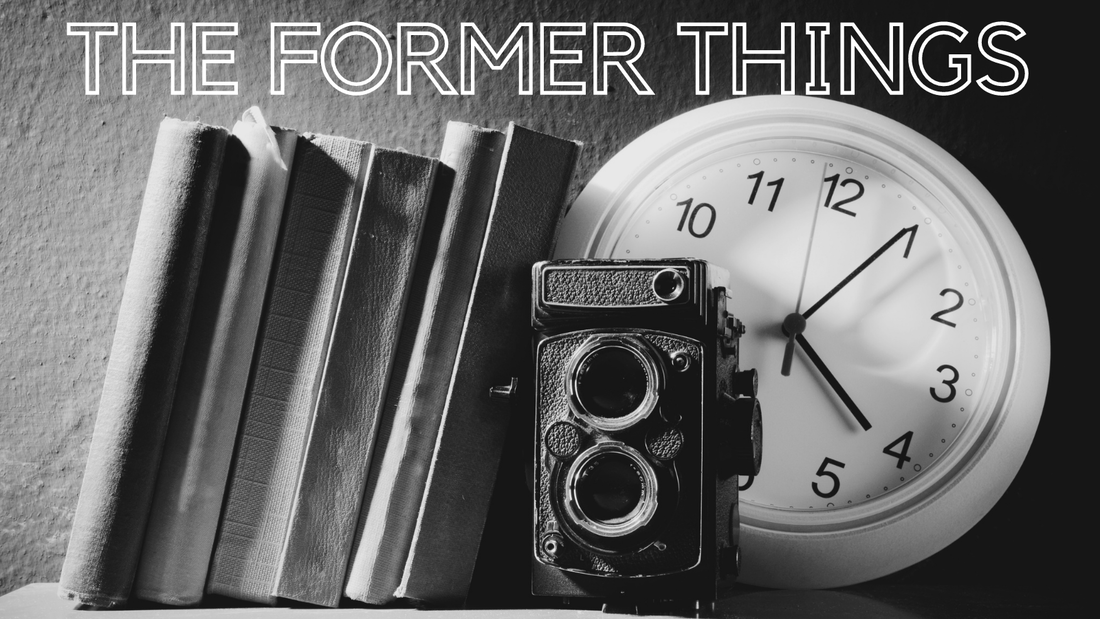

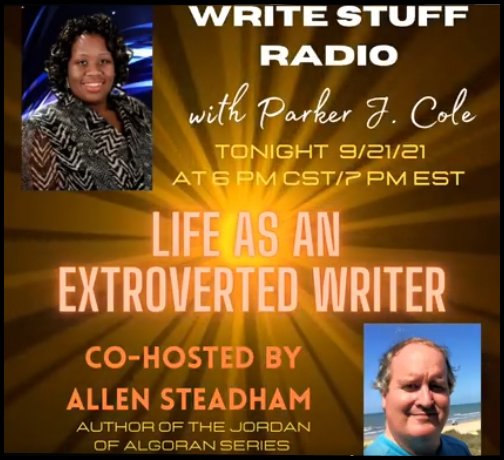
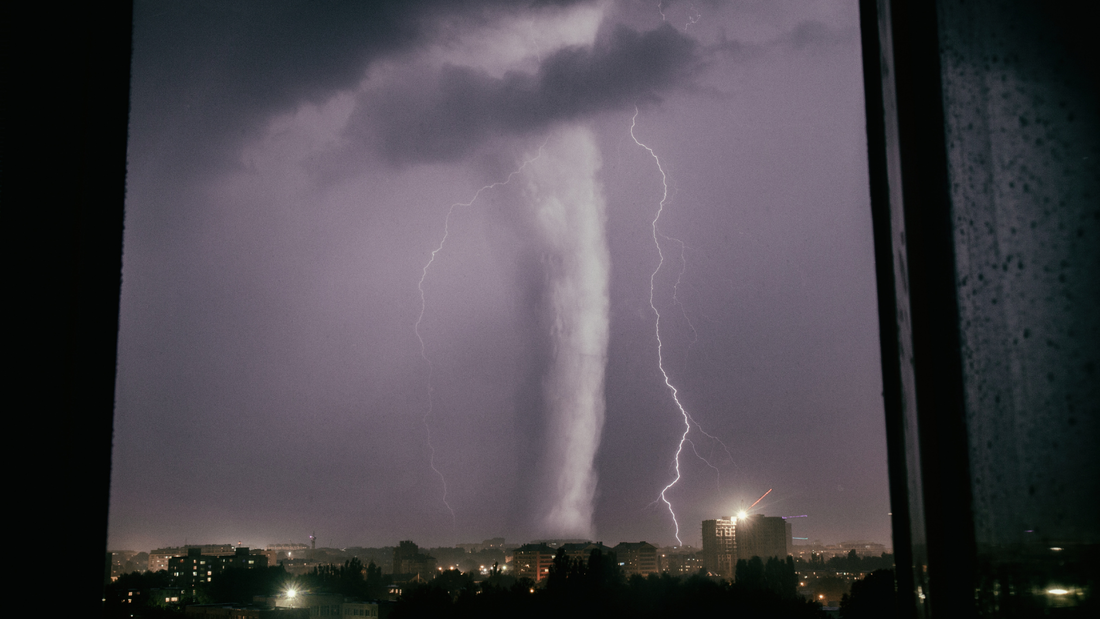
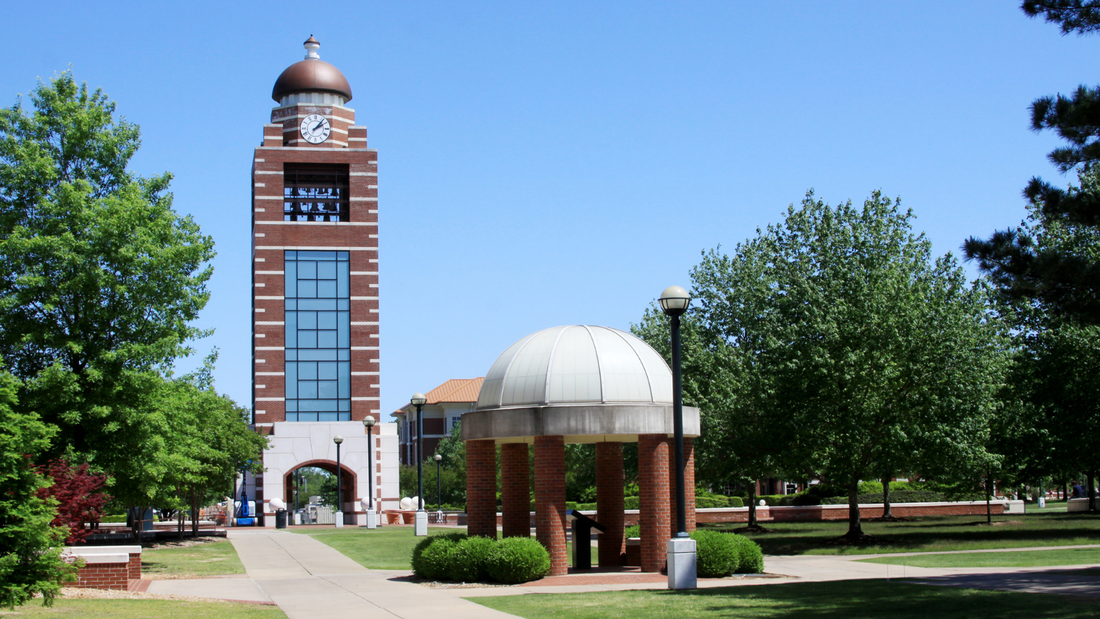

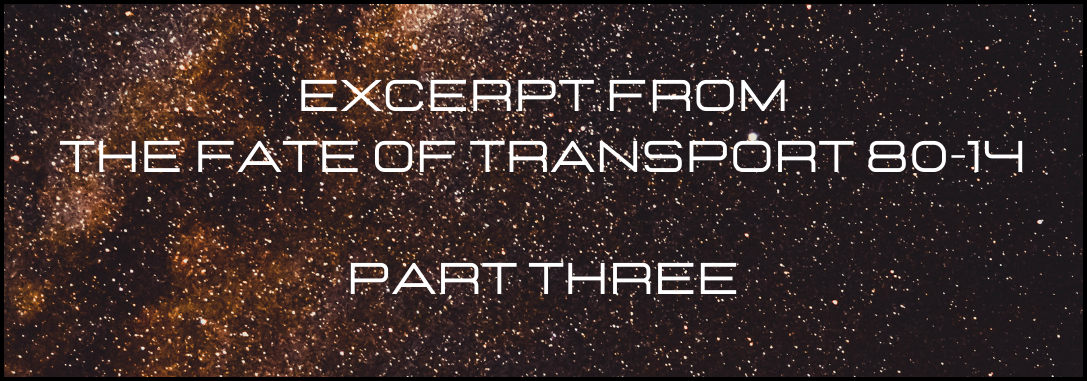
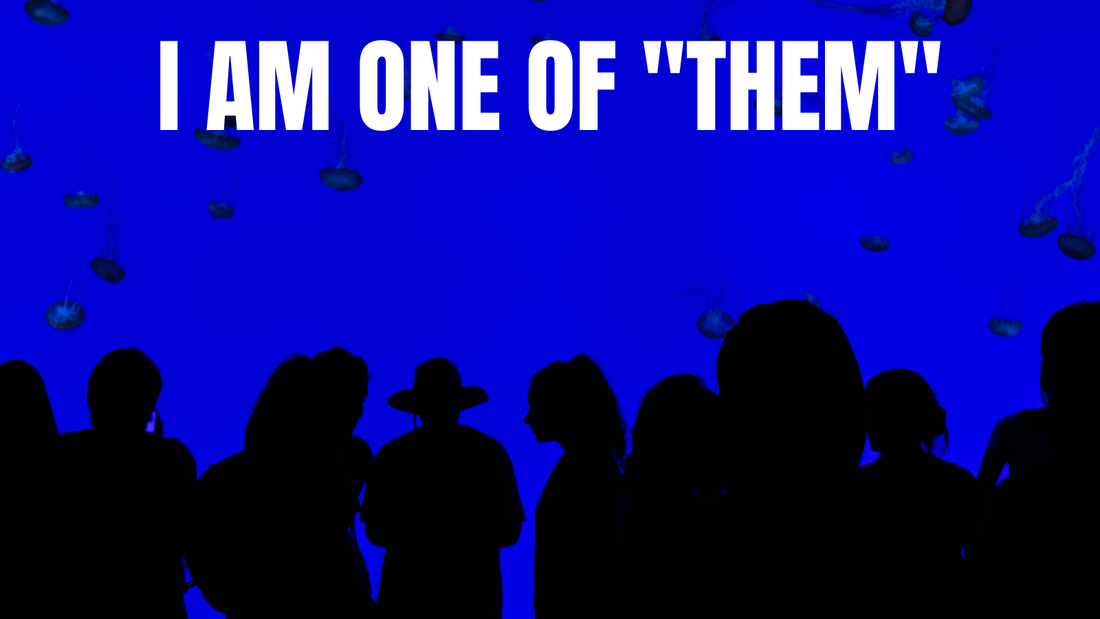
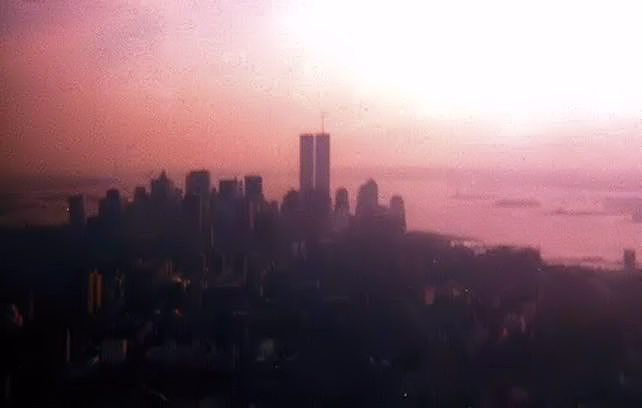
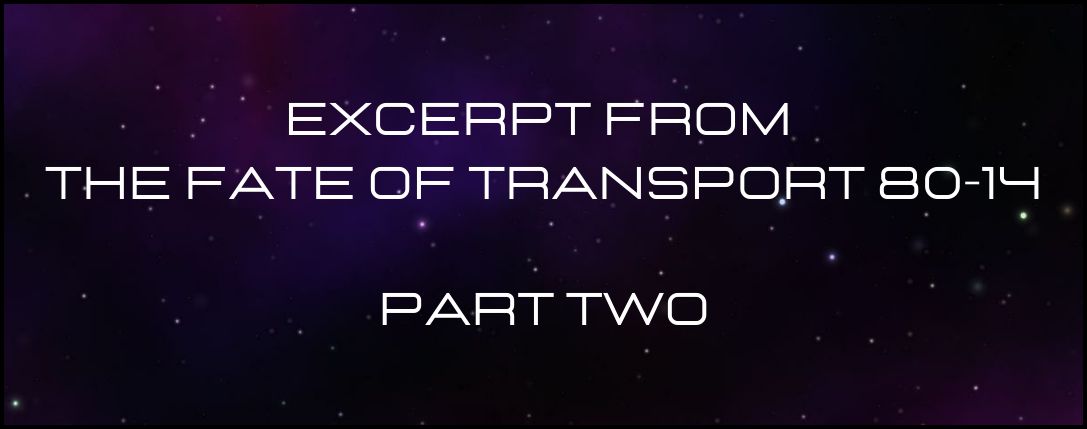

 RSS Feed
RSS Feed